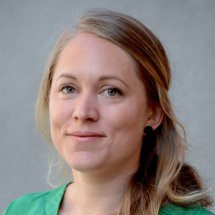Maren Seehawer
Associate Professor
- International Education and Development
- Maren.Seehawer@mf.no
- Office: 321A
- Phone number: 22590583
Professional competence areas:
- Sustainable development
- Positionality
- Decolonising/indigenous methodologies
- Decolonisation of education
- Participatory action research
- Indigenous knowledges
- International education and development
I am an associate professor in international education and development at MF Norwegian School of Theology, Religion and Society. Geographically, my scholarly work focuses mainly on South(ern) Africa, though I have started to learn about the Nordics, too, aiming to apply comparative perspectives between the two. Thematically, I work on three interrelated areas: quality education; sustainable “development” (or rather, the survival of our shared planet) and research methodology. In all three areas, I seek to apply critical, decolonial lenses and I have a focus on indigenous perspectives and ways of knowing. At MF, I am responsible for a one-year course in the social sciences.
Latest academic publications
- Seehawer, M. (2025). Integrating knowledge systems in South African school education as crises response: re-focusing on epistemological questions, African Perspectives of Research in Teaching and Learning (APoRTAL), s. 488 - 503. African Perspectives of Research in Teaching and Learning (APoRTAL), ISSN: 2521-0262
- Norren, D. E. v. & Seehawer, M. (2025). The Future of Sustainable Development Goals and Culture: Addressing Missing Dimensions from Four Cosmovisions African Ubuntu, Latin‑American Buen Vivir, Buddhist Happiness and Nordic Sami Arbediehtu, European Journal of Development Research, European Journal of Development Research, ISSN: 0957-8811
- Khupe, C. & Seehawer, M. & Keane, M. (2024). Decolonising curriculum policy research through community centredness, Analysing Education Policy: Theory and Method,, s. 201 - 214. ISBN: 9781032405018
- Seehawer, M. (2023). Research Agendas in an Ubuntu Paradigm, SOTL in the south, s. 41 - 61. SOTL in the south, ISSN: 2523-1154
- Seehawer, M. & Khupe, C. & Keane, M. (2022). On the Impossibility of Instrumentalising Indigenous Methodologies for the Sustainable Development Agenda, Indigenous Methodologies, Research and Practices for Sustainable Development,, s. 49 - 63. ISBN: 9783031123269
- Seehawer, M. & Nuntsu, S. N. & Mashozhera, F. & Ludwane, A. & Speckman, M. (2022). Creating a Sense of Belonging: Enabling Transformative Learning Through Participatory Action Research in an Ubuntu Paradigm, The Palgrave Handbook of Learning for Transformation,, s. 469 - 481. ISBN: 9783030846930
- Seehawer, M. & Breidlid, A. (2021). Dialogue between epistemologies as quality education. Integrating knowledges in Sub-Saharan African classrooms to foster sustainability learning and contextually relevant education, Social Sciences & Humanities Open (SSHO), s. 1 - 7. Social Sciences & Humanities Open (SSHO)
- Seehawer, M. & Ngcoza, K. M. & Nhase, Z. & Nuntsu, S. N. (2021). Approaching Ubuntu in Education Through Bottom-Up Decolonisation, Proceedings of Pivot 2021 : dismantling/reassembling tools for alternative futures, OCAD University July 22-23 2021, Toronto, Canada,, s. 519 - 527. ISBN: 9781912294435
- Thomas, P. & Seehawer, M. & Fylkesnes, S. (2019). Arenas of Empowerment? Case Study of a ‘Multicultural’ High School in Oslo, Norway, Youth, Place and Theories of Belonging (1st Ed.),, s. 134 - 146. ISBN: 9781138559622
- Seehawer, M. (2018). South African science teachers’ strategies for integrating indigenous and western knowledges in their classes: Practical lessons in decolonisation, Educational Research for Social Change, s. 91 - 110. Educational Research for Social Change
- Seehawer, M. (2018). Decolonising research in a Sub-Saharan African context: exploring Ubuntu as a foundation for research methodology, ethics and agenda, International Journal of Social Research Methodology: Theory and Practice, s. 453 - 466. International Journal of Social Research Methodology: Theory and Practice, ISSN: 1364-5579
- Keane, M. & Khupe, C. & Seehawer, M. (2017). Decolonising Methodology: Who Benefits From Indigenous Knowledge Research?, Educational Research for Social Change, s. 12 - 24. Educational Research for Social Change
- Seehawer, M. (2016). How can South African Science Teachers integrate Indigenous Knowledges into their teaching? A lesson learnt from Eastern Cape Teachers who did it - and a Call for Action for Teacher Educators, Promoting IKS for Continental Cooperation and socioeconomic Development. Proceedings of the 2nd International Conference of the African Association for the Study of Indigenous Knowledge Systems AASIKS,, s. 64 - 70. ISBN: 9780620733403

